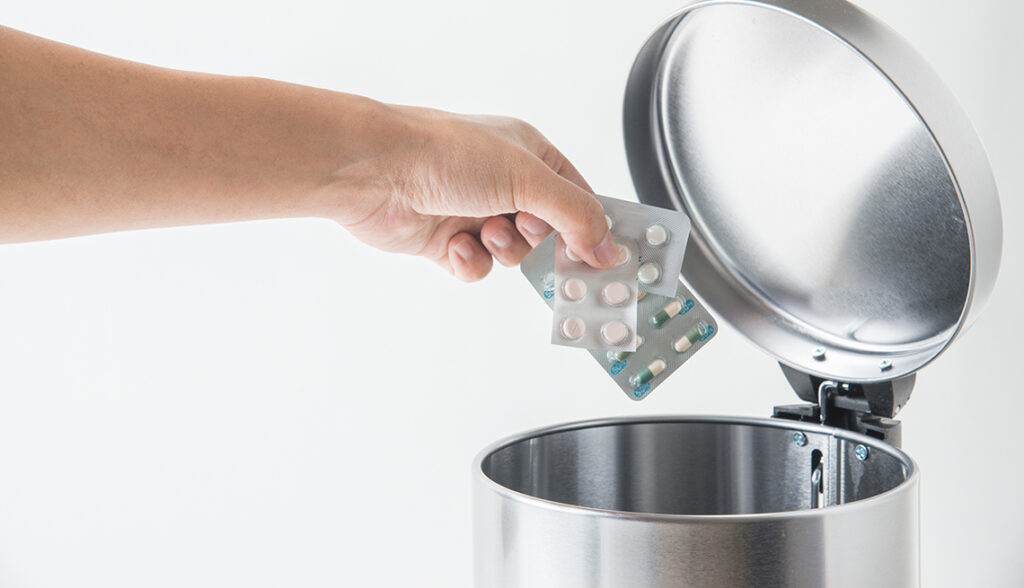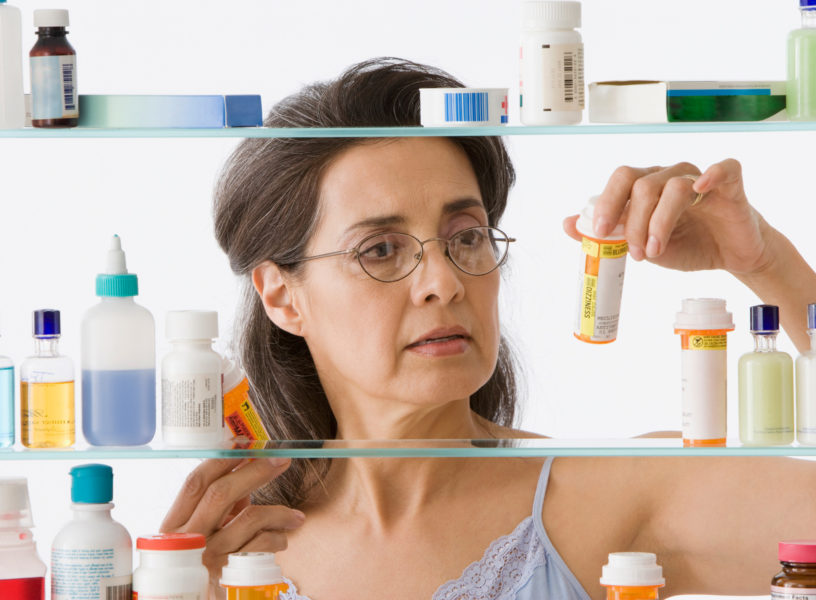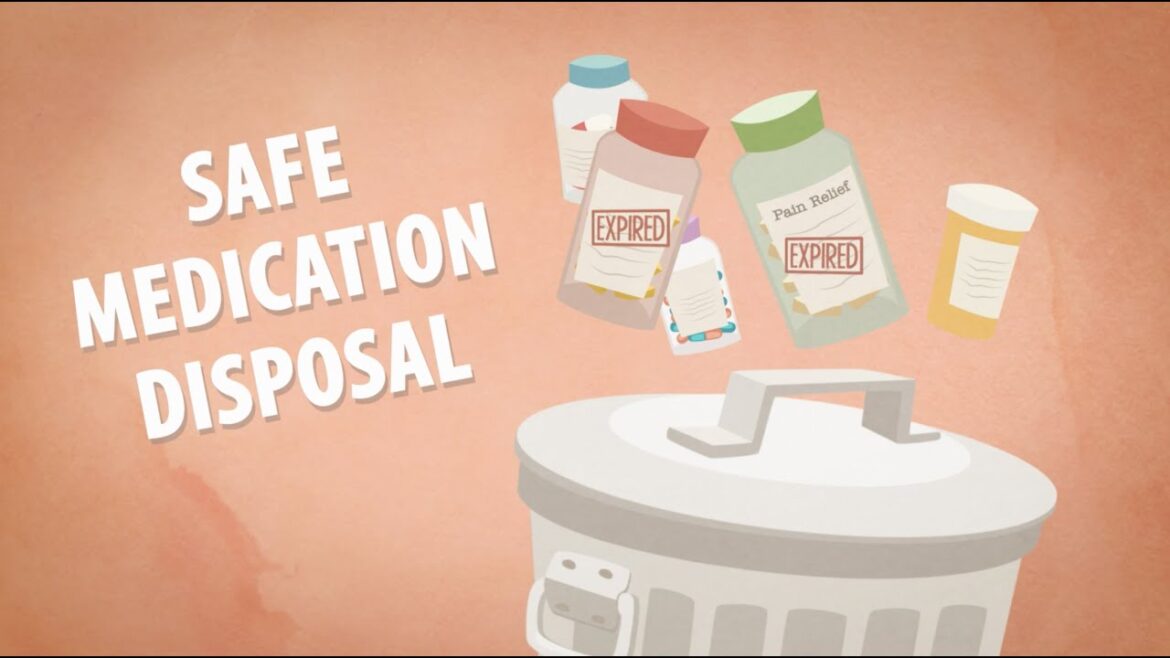As a parent, it’s important to dispose of your baby’s old medicines safely – after all, you have enough on your plate! Luckily, we’ve compiled the best ways to help you through this potentially tricky process. Keep reading to learn how you can properly get rid of those expired medications without tearing your hair out.
Benefits of Proper Disposal of Old Baby Medicines

Source: freepik.com
Parents want to ensure their baby’s safety at all times, and proper medical waste management of old medicines is one small way to do this. Unfortunately, improperly discarding unused and expired baby medicines can result in illnesses, poisoning or addiction. The following list outlines the benefits of properly disposing of old baby medicines:
• Protection From Potential Harm – Unused or expired baby medications should never be kept in the home after they are no longer needed because they can cause risks of harm if left around children or teenagers. Proper disposal also helps protect others from access to medications that may already be expired or are potentially dangerous if not used as directed.
• Reduced Environmental Impact – Pharmaceuticals such as those found in many babies’ medicines can have an adverse impact on the environment when not correctly disposed of. This can include contaminating soil and water sources, leading to health risks for humans and animals alike. Thisl helps reduce these risks by taking measures to ensure that unwanted drugs don’t end up in nature’s ecosystems.
• Safe Disposal Locations – Not all pharmacies legally dispose of waste products safely and securely, which is why pharmaceutical collection programs are important for locations that may not be able to do it properly on their own. By locating a participating pharmacy nearby that offers safe drug destruction programs, parents can feel more confident when disposing of old baby medicines appropriately, instead of flushing them down the toilet or throwing them away themselves–which is considered illegal in many places!
• Professional Guidance – Most pharmacies offer guidance on safely disposing your unused medications; ask your pharmacist how to properly eliminate any excess drugs you may have lying around in your home–old baby meds included! They’ll be able to provide vital advice on where you should take them for safe and secure destruction so you won’t have any worries about what may occur from improper throwing-away practices or illegal flushing methods.
Guidelines for Disposal of Old Baby Medicines

Source: youtube.com
When it comes to disposing of old medicines for babies, there are specific guidelines that parents should follow. Since baby medicines do not require the same storage, tracking, and disposal protocols as adult medications, parents should be aware of the best way to dispose of such products. Depending on how many of these products you have in your home and their expiration dates, here are some guidelines for safely disposing old baby medicines:
• Check with a doctor or pharmacist on the proper disposal instructions for each medicine; this might involve keeping them out of reach of family members who should not use them or returning the unused products to a local pharmacy.
• If the instructions say to dispose of the medication down the sink or toilet (a rare case), first mix it with cat litter or sawdust and place it in an inaccessible location to pets and children before disposing it to the sink or toilet as instructed by a medical or pharmaceutical professional.
• Follow local government guidelines when disposing expired medications at municipal hazardous waste facilities usually found within most residential areas. Check with your local recycling program for techniques on how best to do this properly and safely.
• Never share unused medication with friends and family members; always ask a doctor if new users can take previously prescribed medications from old users especially when it is related to babies and kids health care needs as some may no longer be safe after expiration date specified on product packaging has been exceeded by many days/months/years.
• Ensure used medicines are stored away from heat in safe places inaccessible from children’s reach at all times, even if they look expired but still smell good enough keep away from them just in case which will prevent any possible contamination or accidental consumption due to unknown type(s) of potential contaminants present within products upon usage by multiple people over time without any prior assumption made thereof prior practicing such behaviors accordingly bearing unto this fact overall that product safety cannot be determined beyond acceptable limits during such events possibly happening usually without our knowledge whatsoever sufficiently so externally anyway possible per exceeding expectations whereby fulfilling respective roles presented based upon what is expected thereof as conceded thereto likewise fully as a result hereby accordingly.
Tips for Safely Disposing of Old Baby Medicines

Source: facebook.com
Getting rid of baby medicines responsibly can help protect the environment and help prevent your family and friends from accidentally consuming medications that your child no longer needs. Here are some tips to ensure proper disposal of baby medicines:
- Check with your local pharmacy – Many pharmacies offer medicine take-back services, or they may be able to advise you on the best way to dispose of old baby medicines.
- Floating Method – For non-controlled substances, fill a container with water, drop in the medication, and seal it tightly before throwing it in the trash.
- Airport Security – Call your local airport security to find out if they accept unused and expired medications for disposal.
- Local Waste Management Office – Call your municipal waste management office for more information about hazardous wastes collection days and events in your area.
- Mail Back Program – Look for mail back programs at clinics or pharmacies that accept old medications for secure disposal by mail.
- Retail Collection Locations – Check for retail collection locations near you if you are unable to access a mail back program or a hazardous waste collection event. Most chain grocery stores offer medication disposal options such as secure collections bins or return envelopes.
Conclusion
As always, it’s advisable to consult with your pharmacist or doctor if you have additional questions about properly disposing of baby old medicines. Taking every precaution possible can help ensure that no one is exposed to expired or unused medications which could pose a safety risk. Adhering to these tips will help create a safer and more secure environment for all family members – especially children!





